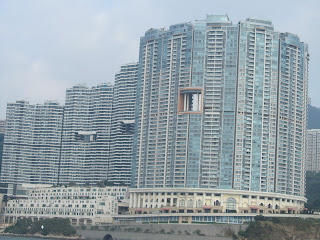Have been mulling over this blog post for a few weeks now and finally decided to put fingers to the keyboard! As I mentioned in a previous blog last month was the Muslim festival of Eid ul-Fitr and whilst the Philippines is a rare, majority Christian country in Asia in respect to the minority Muslim population Eid ul-Fitr was declared a national holiday. Needless to say none of the non-Muslims were unhappy about getting an extra day off work, myself included!
Whilst I learnt the basics about the "Five Pillars of Islam" in religious education classes in secondary school I had heard nothing about Eid until I lived in Guyana, where due to the diversity of the population Hindu, Christian and Muslim festivals were celebrated as national holidays.I have learnt there are two Eids - Eid ul-Fitr and Eid al-Adha and was interested to hear a conversation between my Muslim boss and a colleague who has spent a lot of years living in the Middle East about how different countries view one or the other as the Great Eid as opposed to Little Eid.
Eid ul-Fitr is the celebration of the end of Ramadan, the month of fasting and it seems only appropriate to me that that would be celebrated with a great feast and as I watched the regional news from Hong Kong the coverage was about the trade at livestock markets in the days running up to Eid. It is also the start of the Haaj, the pilgrimage to Mecca (Ramadan and the Haaj being two of the five pillars of Islam if my memory from all those years ago still serves me well enough).
In Guyana I was surprised to discover the basis of Eid al-Adha, which is the celebration of Abraham being willing to take his son Ishmael up the mountain to sacrifice him in obedience to Allah. At the last moment Allah instructs him not to sacrifice Ishmael and instead provides a goat. I remember being stunned how closely this matches the Biblical story, only that as Christians we believe that it was Isaac the second son of Abraham but the son of the promise of God who was taken to be sacrificed. Until then I had viewed Islam as an alien faith so dissimilar to Christianity. After that I found I could feel much more comfortable in Muslim celebrations, unlike the Hindu ones. Allah is simply the Arabic word for God, used even before the birth of Mohammed.
At Eid al-Adha a Muslim family buys a cow, sheep or goat according to their means. It is then slaughtered remembering the sacrificial goat that God provided to Abraham, the meat is then divided into thirds - a third for family, a third for friends and a third for the poor (giving to the poor being the third of the five pillars).
Having just finished reading of all the sacrifices required of the Israelites in Leviticus and Numbers in the Bible and how important the blood was I am struck by how as Christians we have forgotten what a bloody system of sacrifice we have been saved from. The week before Eid and the TV coverage of livestock markets I had almost seen a sacrifice at a work site not far from where I work in Manila. It was strange to see a tied up goat being dragged out onto the construction, I even glimpsed the knife in the hand of one of the workers, but it wasn't until an Asian colleague explained to me the goat was to be slaughtered for good luck in the work that it really dawned on me. I'm pleased to say the process was delayed once the guys caught sight of me, deciding for whatever reason that it would be better not to have an outsider for a spectator.
When as Christians we talk of Christ coming as a baby at Christmas and the purpose of his life being to be sacrificed as an offering to pay the price of justice for our wrong doing, it seems just like words, it seems sanitised not the bloody mess that it really was. Both those of faith and those of no-faith have a tendency to talk of sacrifice in a very understated way, instead of a "small inconvenience" it is a "sacrifice" that we are making - very rarely are our sacrifices, even our living sacrifices much of a sacrifice at all.






















